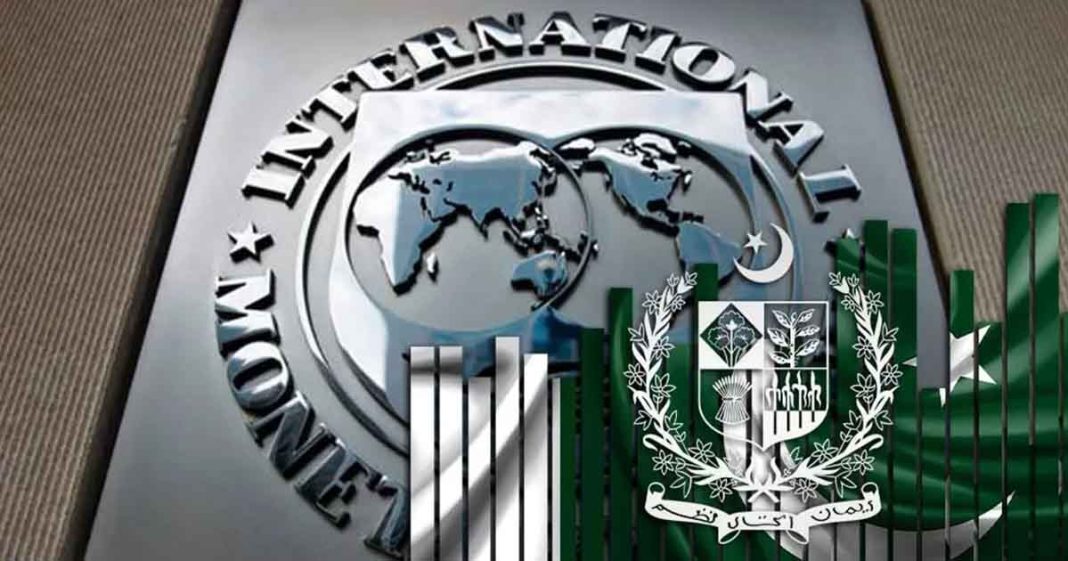Islamabad: The executive board of the International Monetary Fund (IMF) on Friday approved the tenth loan tranche of the $6.2 billion loan programme after Pakistan introduced Rs40 billion mini-budget on the lender’s demand to meet the shortfall in tax revenues.
The board’s decision to approve the ninth review of Pakistan’s economy enables the immediate disbursement of an amount equivalent to $498.1 million, bringing total disbursements to $ 4.98 billion, according to a short announcement by the IMF.
In September 2013, the IMF had approved the three-year extended arrangement, which is going to expire in September next year.
However, like most of the previous reviews, the IMF had to give two more waivers after Islamabad could not meet conditions on restricting the budget deficit and reducing net domestic assets within the limits prescribed by the lender for July-September period.
The government also could not meet the condition of collecting Rs640 billion, falling short of the target by Rs40 billion. The IMF had placed the pre-condition of imposing Rs40 billion additional taxes for the tenth loan tranche.
The IMF board also allowed modification of performance criteria of net domestic assets for October-December period, said the lender’s statement said.
With the last two waivers, the IMF has so far given 14 waivers in nine reviews of Pakistan’s economy, highlighting its lenient policy towards implementation of structural reforms.
The government met the conditions on increasing net international reserves, reducing government borrowings from the central bank, and foreign currency swaps for July-September period. It also met the indicative ceiling on accumulation of power sector arrears and the indicative floor on social spending under the Benazir Income Support Programme (BISP).
Pakistan’s record on achieving tough conditions remains poor and the programme has entered a critical phase where the IMF will toughen its stance, particularly on increasing tax revenues and the privatisation programme.
The chief of the IMF mission in Pakistan, Tokhir Mirzoev, on Friday shared his views on Pakistan’s economic affairs in a guarded manner. He compared the country with its other regional peers.
Pakistan did not seem to stand out in terms of improvements in governance, regulatory regime, controlling corruption and maintaining rule of law compared with other regional states including China, India and Bangladesh, said Tokhir Mirzoev while speaking at Pakistan Institute of Development Economists conference here on Friday.
He outlined certain prerequisites for achieving higher and sustainable growth including macroeconomic stability, central bank independence, investment climate, materialising the China-Pakistan Economic Corridor (CPEC), tackling energy crisis, mobilising tax revenues and curbing loss making public sector enterprises.
“Pakistan has achieved GDP growth in the range of 4 to 4.5% in three years period but China, India and Bangladesh have achieved growth at a much faster pace,” the IMF chief said.
For controlling corruption, he said that Pakistan did not seem to stand out on this account compared with other regional states. He praised Pakistan’s performance in tackling the menace of terrorism.
He said the $6.2 billion IMF programme has helped Pakistan stabilise the economy, saying many other countries including South Korea and even UK continued the reform path even after completing the IMF programmes.
Citing historical background, the IMF mission chief said that Pakistan abandoned the reforms path after exiting the IMF programmes. He said that tax reforms can only be truly implemented if a country takes its ownership.
Since 1958, Pakistan has signed 19 loan programmes for averting a balance of payment crisis, said Dr Hafiz Pasha, former Finance Minister.
There are chances that the government will abandon the reforms afterwards aimed at getting the liberty to spend without restrictions ahead of 2018 general elections.
However, economists are of the view that the new government that will come in to power as a result of 2018 general elections will have to seek another programme due to growing foreign debt repayments.
Dr Pasha has projected that by 2019 when the new government will be in the office, Pakistan’s external debt will grow to $90 billion – up from current level of $65 billion and the country will require $20 billion a year just to meet external financing requirements.
Read : $6.2b package: IMF sets deadline for applying new taxes






